
Jerusalem: A Journey Through Time and Faith
Jerusalem is a city where history breathes through every stone and spiritual significance envelops every corner. As one of the oldest cities in the world, it is a melting pot of cultures and religions, hosting sacred sites for Judaism, Christianity, and Islam. The Old City, a UNESCO World Heritage site, is divided into four quarters: Jewish, Christian, Muslim, and Armenian, each offering a unique glimpse into the city’s diverse heritage. Visitors can walk through the ancient streets and visit iconic landmarks such as the Western Wall, the Church of the Holy Sepulchre, and the Al-Aqsa Mosque. The Tower of David offers panoramic views of the city, and the Yad Vashem Holocaust Memorial provides a poignant reminder of the past. For a taste of modern Jerusalem, head to the bustling Mahane Yehuda Market, where you can sample local delicacies and experience the vibrant atmosphere. Apart from its historical and religious significance, Jerusalem also offers serene gardens and parks, including the Garden of Gethsemane and the Mount of Olives. The city’s museums, such as the Israel Museum with the Dead Sea Scrolls, provide deeper insights into its rich history. Despite its ancient roots, Jerusalem is very much alive, with contemporary art galleries, cafes, and nightlife that cater to all tastes.
Local tips in Jerusalem
- Dress modestly when visiting religious sites to show respect for local customs.
- Visit the Western Wall early in the morning or late in the evening to avoid crowds.
- Use public transportation or walk within the Old City as driving and parking can be challenging.
- Check local holidays and events as some sites may have different opening hours or be closed.
- Try local foods like falafel, hummus, and fresh pastries at Mahane Yehuda Market.
- Learn a few basic Hebrew or Arabic phrases to enhance your interaction with locals.
- Stay hydrated and wear comfortable shoes, as exploring Jerusalem involves a lot of walking.
Neighbourhoods in Jerusalem
Jerusalem: A Journey Through Time and Faith
Jerusalem is a city where history breathes through every stone and spiritual significance envelops every corner. As one of the oldest cities in the world, it is a melting pot of cultures and religions, hosting sacred sites for Judaism, Christianity, and Islam. The Old City, a UNESCO World Heritage site, is divided into four quarters: Jewish, Christian, Muslim, and Armenian, each offering a unique glimpse into the city’s diverse heritage. Visitors can walk through the ancient streets and visit iconic landmarks such as the Western Wall, the Church of the Holy Sepulchre, and the Al-Aqsa Mosque. The Tower of David offers panoramic views of the city, and the Yad Vashem Holocaust Memorial provides a poignant reminder of the past. For a taste of modern Jerusalem, head to the bustling Mahane Yehuda Market, where you can sample local delicacies and experience the vibrant atmosphere. Apart from its historical and religious significance, Jerusalem also offers serene gardens and parks, including the Garden of Gethsemane and the Mount of Olives. The city’s museums, such as the Israel Museum with the Dead Sea Scrolls, provide deeper insights into its rich history. Despite its ancient roots, Jerusalem is very much alive, with contemporary art galleries, cafes, and nightlife that cater to all tastes.
When is the best time to go to Jerusalem?
Iconic landmarks you can’t miss
Church of the Holy Sepulchre
Discover the profound spiritual and historical significance of the Church of the Holy Sepulchre in Jerusalem, a must-visit for every traveler.
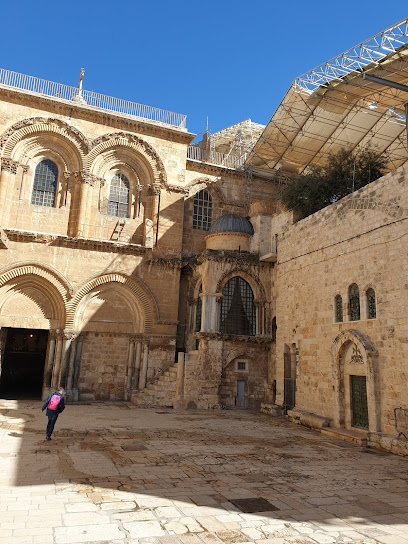
The Israel Museum, Jerusalem
Explore the Israel Museum in Jerusalem, where art, archaeology, and history come together to tell the story of human civilization.

Gethsemane
Discover the profound history and serene beauty of Gethsemane, a sacred site in Jerusalem that invites reflection and peace.
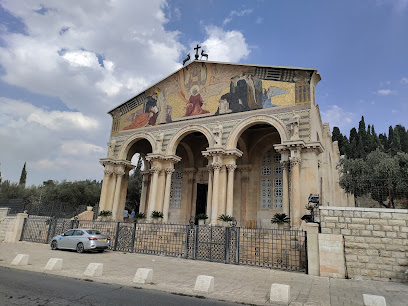
Western Wall
Discover the spiritual heart of Jerusalem at the Western Wall, a timeless shrine of faith and devotion that resonates with visitors worldwide.
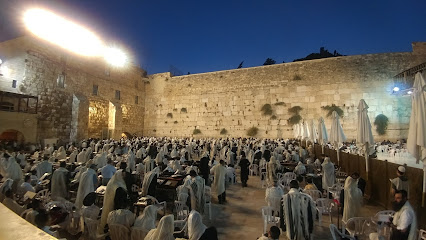
Zion Gate
Explore Zion Gate, a historic portal in Jerusalem's Old City, showcasing centuries of culture and heritage in a stunning architectural landmark.
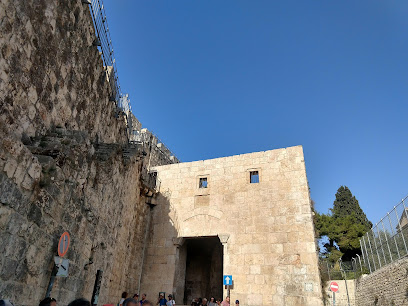
Tower of David
Discover the Tower of David in Jerusalem, a historical museum that offers breathtaking views, fascinating exhibits, and a deep dive into the city's rich past.
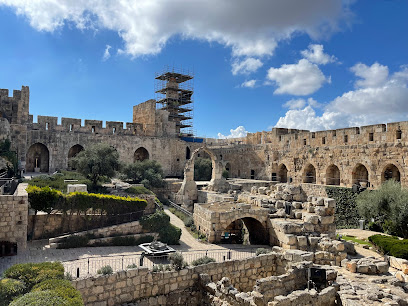
Damascus Gate
Discover the iconic Damascus Gate, a majestic entrance to Jerusalem's Old City, rich in history, culture, and vibrant local life.
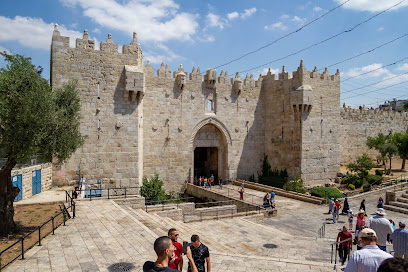
The Jerusalem Botanical Gardens
Discover the lush beauty and diverse plant life at The Jerusalem Botanical Gardens, a tranquil oasis in the heart of the historic city.
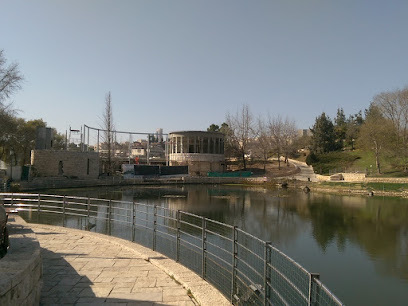
Ein Hemed National Park
Discover the natural beauty and historical treasures of Ein Hemed National Park, a serene escape just outside Jerusalem.
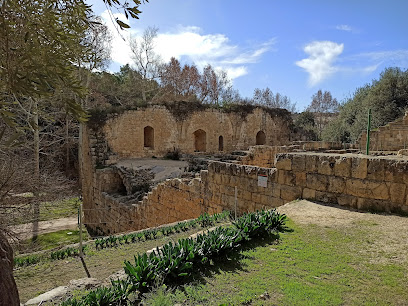
The Garden Tomb Jerusalem
Discover the serenity and historical significance of The Garden Tomb in Jerusalem – a peaceful retreat for reflection and contemplation.
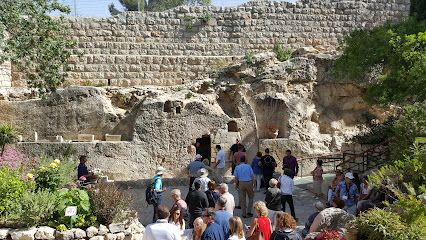
Nebi Samuel National Park
Discover the breathtaking beauty and spiritual significance of Nebi Samuel National Park, a hidden gem near Jerusalem perfect for nature lovers and history enthusiasts.
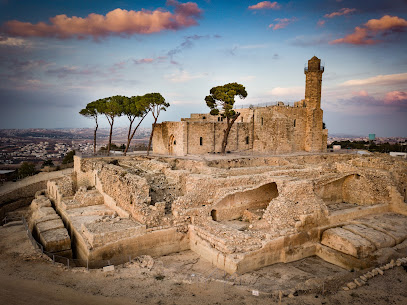
Dome of the Rock
Experience the breathtaking beauty and spiritual significance of the Dome of the Rock, an iconic landmark in Jerusalem's rich history.
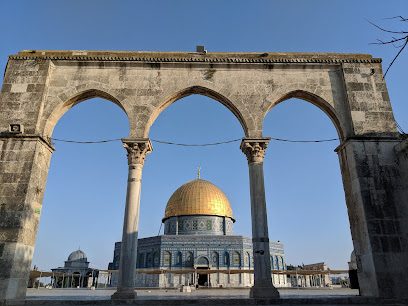
New Gate
Explore the historic New Gate of Jerusalem, a gateway to the Old City's vibrant culture and rich history, where ancient meets modern.
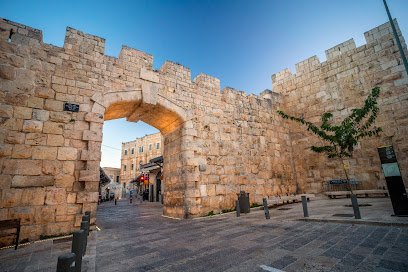
Herod's Gate
Explore the historical depths of Jerusalem at Herod's Gate, an iconic entrance that connects past and present in this ancient city.
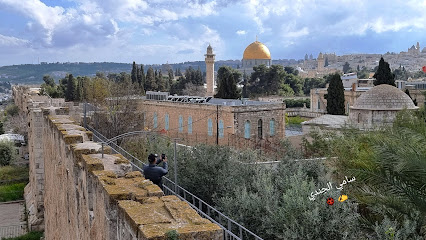
Bible Lands Museum Jerusalem
Explore the rich history of biblical times at the Bible Lands Museum Jerusalem, where ancient artifacts and engaging exhibits await your discovery.

Unmissable attractions to see
Mahaneh Yehudah Market
Discover the vibrant Mahaneh Yehudah Market in Jerusalem, where local flavors, fresh produce, and cultural experiences come alive in a bustling atmosphere.
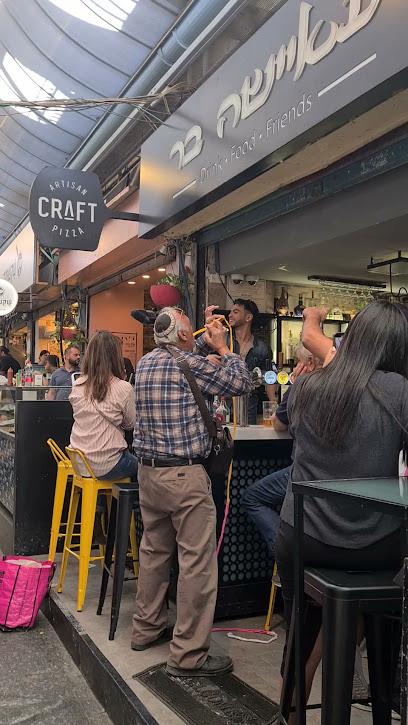
Church of the Holy Sepulchre
Explore the profound history and spiritual significance of the Church of the Holy Sepulchre, a cornerstone of Christian heritage in Jerusalem.
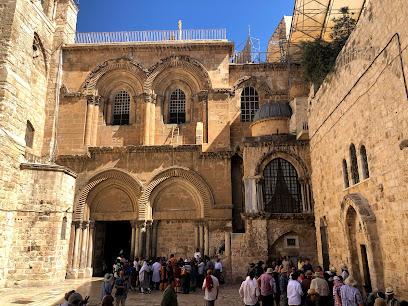
Al-Aqsa Mosque
Experience the spiritual and architectural wonder of Al-Aqsa Mosque, a cornerstone of Jerusalem's rich heritage and a must-visit tourist attraction.
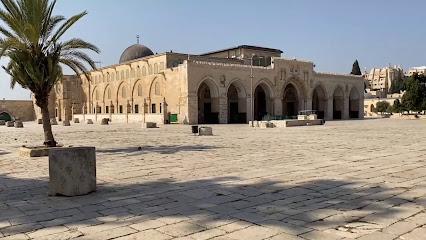
The First Station
Discover the vibrant heart of Jerusalem at The First Station, a cultural hub blending history with modern attractions, dining, and entertainment.
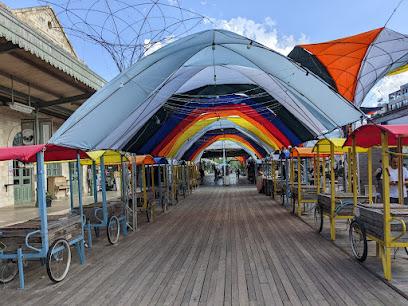
The Tisch Family Zoological Gardens in Jerusalem
Experience the beauty of wildlife at the Tisch Family Zoological Gardens in Jerusalem, an engaging zoo dedicated to conservation and education.
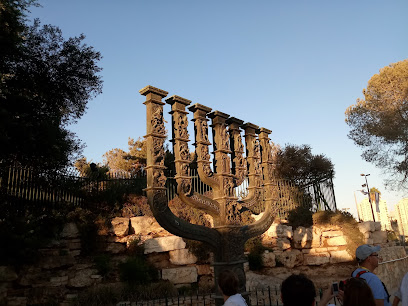
Yad Vashem
Explore Yad Vashem in Jerusalem, a profound memorial that honors Holocaust victims and educates about tolerance and remembrance.
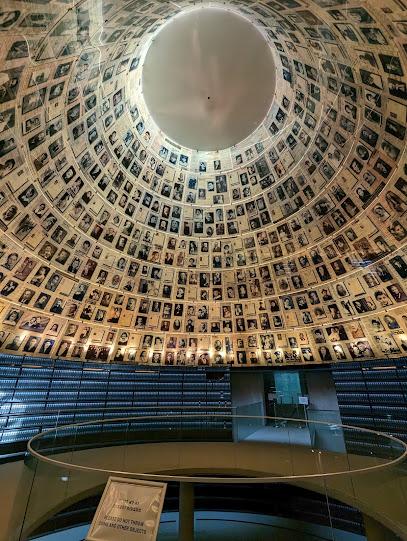
The Israel Museum, Jerusalem
Discover the rich history and vibrant art of Israel at the Israel Museum in Jerusalem, home to the Dead Sea Scrolls and stunning collections.
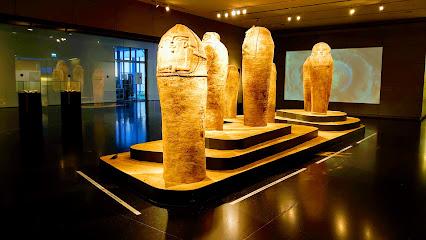
Gethsemane
Discover the profound spiritual heritage and stunning natural beauty of Gethsemane, a historic site in Jerusalem that invites reflection and tranquility.
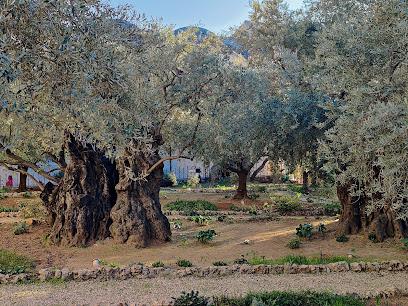
Sacher Park
Explore Sacher Park, Jerusalem's lush green oasis, perfect for relaxation, family outings, and outdoor activities amidst vibrant nature.
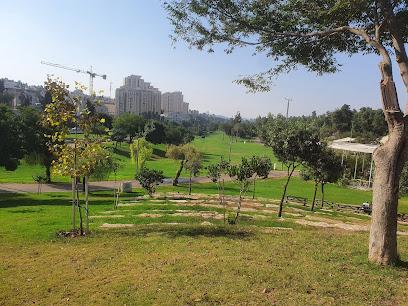
Israel Aquarium
Discover the Israel Aquarium, a mesmerizing aquatic world in Jerusalem showcasing marine life and conservation efforts for all ages.
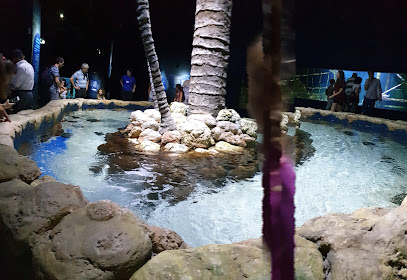
Church of the Nativity
Discover the sacred history and architectural beauty of the Church of the Nativity, the birthplace of Jesus, in the heart of Bethlehem.
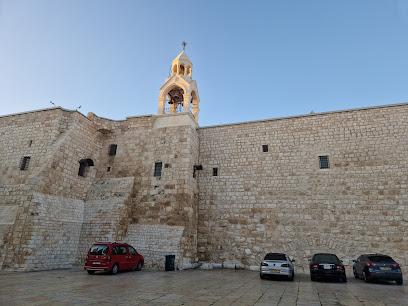
Zion Gate
Explore the historic Zion Gate in Jerusalem, a majestic entrance that opens the door to a rich tapestry of heritage and spirituality.
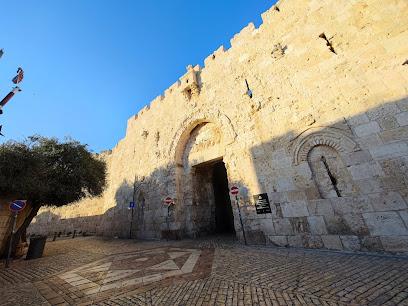
Tower of David
Discover the rich history of Jerusalem at the Tower of David, where ancient architecture meets captivating exhibitions and stunning views.
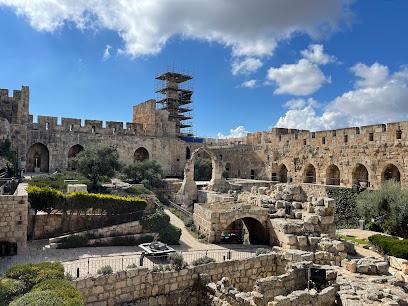
Damascus Gate
Discover the stunning Damascus Gate in Jerusalem, a historic architectural marvel and vibrant gateway to the Old City’s rich culture and history.
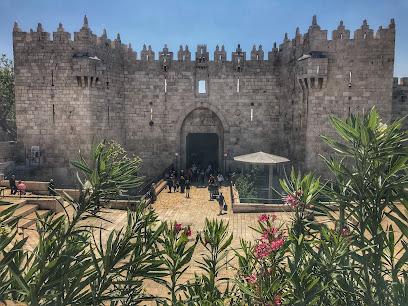
The Jerusalem Botanical Gardens
Explore diverse flora, serene landscapes, and educational insights at The Jerusalem Botanical Gardens, a must-visit destination in Jerusalem.
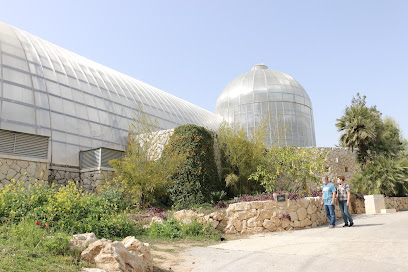
Essential places to dine
Machneyuda
Discover culinary excellence at Machneyuda – where Jerusalem's vibrant flavors meet gourmet creativity in an unforgettable dining experience.
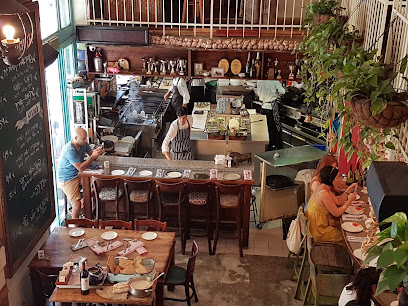
Ishtabach
Experience authentic Middle Eastern cuisine at Ishtabach in Jerusalem, where traditional flavors meet modern hospitality.
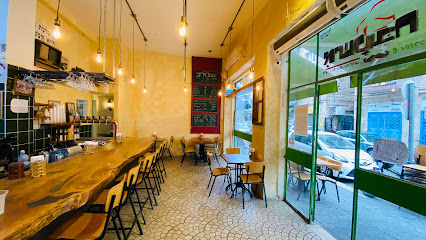
Focaccia Bar
Discover authentic Italian flavors at Focaccia Bar in Jerusalem – where every meal feels like a celebration of culinary artistry.
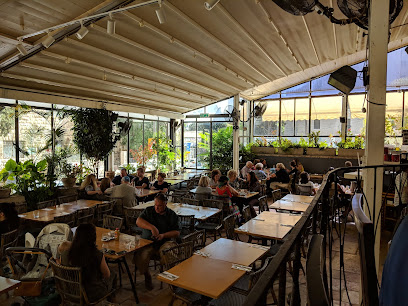
Azura
Experience authentic Middle Eastern flavors at Azura in Jerusalem - where tradition meets taste in every dish.
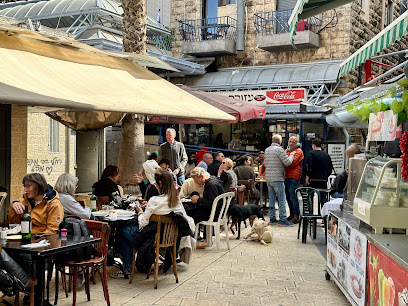
Piccolino
Experience authentic Italian flavors at Piccolino in Jerusalem – where every meal is a celebration of taste.
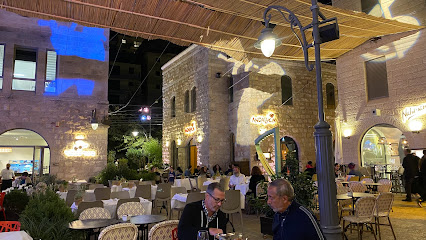
Ben-Sira Hummus
Experience authentic Israeli flavors at Ben-Sira Hummus in Jerusalem – where every dish tells a story!
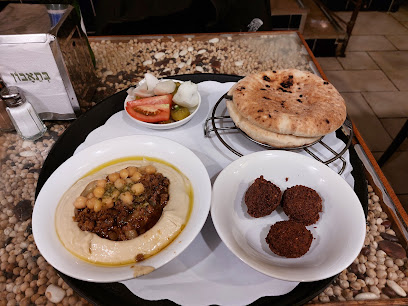
נוקטורנו בית וקפה - Nocturno
Discover Nocturno in Jerusalem: A vibrant restaurant and bar offering delicious cuisine, live music, and an inviting atmosphere.
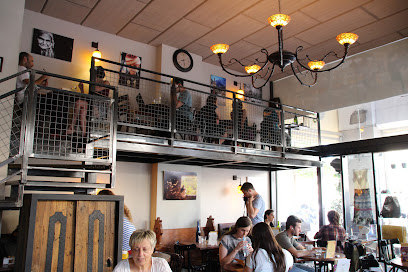
Tmol Shilshom
Discover Tmol Shilshom: A charming kosher restaurant in Jerusalem offering delectable dishes and vibrant cultural experiences.
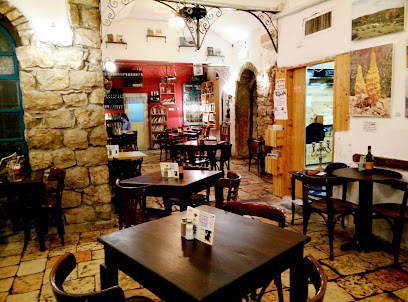
זוני ZUNI
Discover the culinary delights at ZUNI in Jerusalem—where tradition meets innovation in every dish.
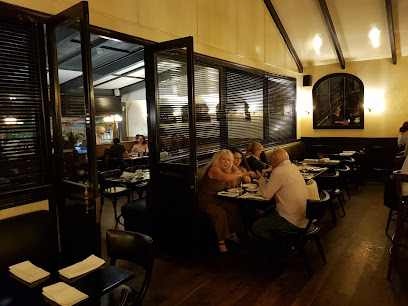
Adom Restaurant
Experience exquisite French and seafood cuisine at Adom Restaurant in Jerusalem – where culinary artistry meets vibrant atmosphere.
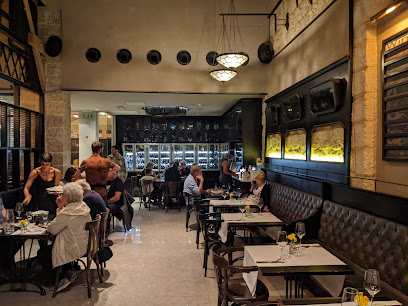
Talbiye
Discover Talbiye in Jerusalem: A premier French restaurant offering exquisite cuisine and impeccable service in an elegant setting.
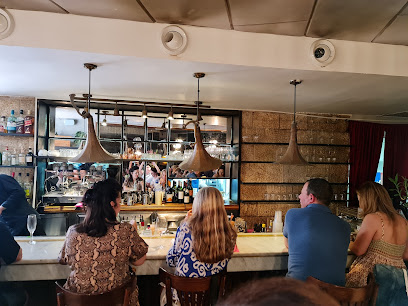
Cafe Yehoshua
Experience the heart of Jerusalem at Café Yehoshua - where local flavors meet modern dining in a cozy atmosphere.
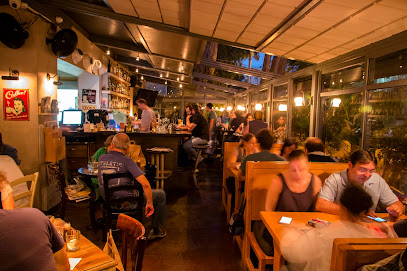
Crave Gourmet Street Food
Discover Crave Gourmet Street Food in Jerusalem - where gourmet American flavors meet kosher excellence in an inviting atmosphere.
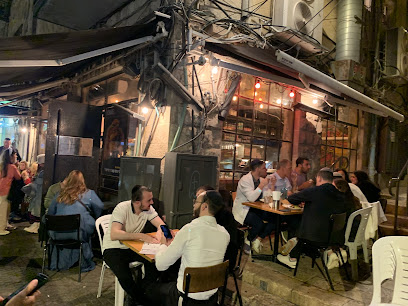
Mona
Experience exquisite French cuisine at Mona, Jerusalem's premier fine dining destination, where culinary artistry meets elegant ambiance.
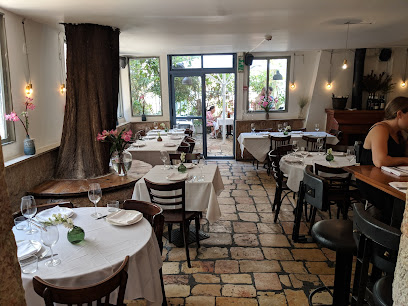
Menza
Experience the vibrant flavors of Jerusalem at Menza – where local cuisine meets warm hospitality.
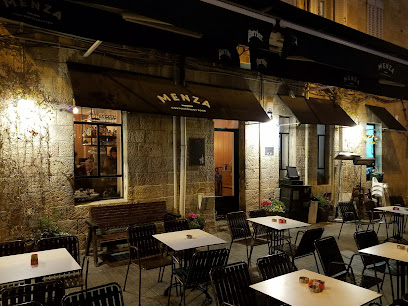
Markets, malls and hidden boutiques
Alrov Mamilla Avenue
Discover the vibrant shopping and cultural experience of Alrov Mamilla Avenue, blending luxury boutiques with the historic charm of Jerusalem.
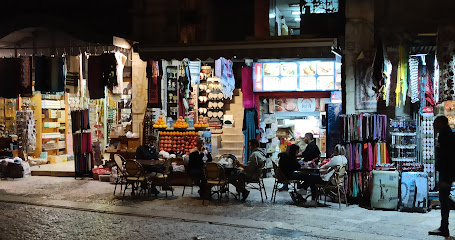
Ha'metzi'on second-hand stores
Discover unique vintage finds and sustainable fashion at Ha'metzi'on second-hand stores in Jerusalem, a treasure trove for thrift lovers.
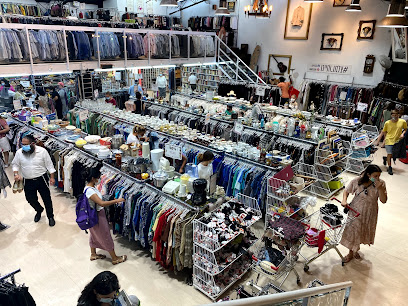
Zak’s Jerusalem Gifts
Explore Zak's Jerusalem Gifts for unique antiques and authentic souvenirs that capture the essence of Jerusalem's rich culture and history.
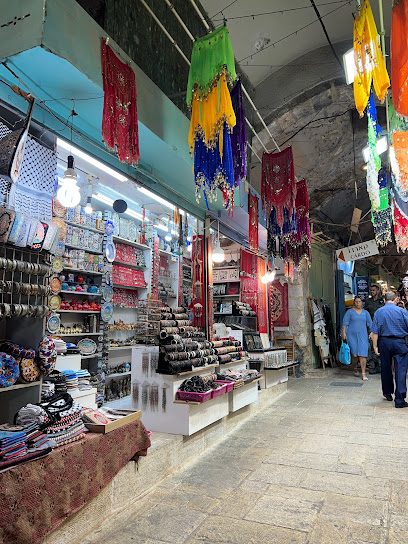
Baltinester Jewish Jewelry & Judaica in Jerusalem
Explore exquisite handcrafted jewelry and Judaica at Baltinester in Jerusalem, where tradition meets artistry in every piece.
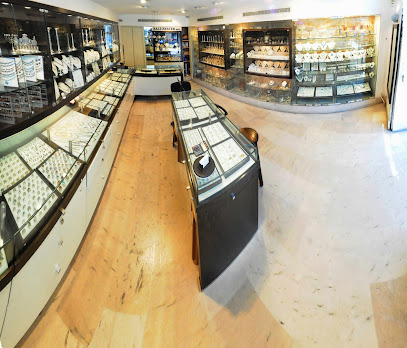
Nisha Israeli Gifts
Explore Nisha Israeli Gifts for unique handcrafted treasures that embody the spirit of Jerusalem and its rich cultural heritage.
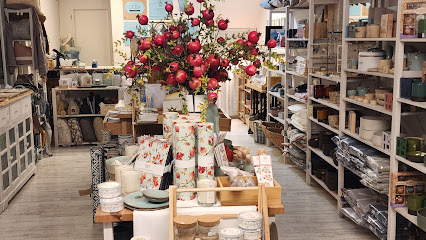
Hoodies
Discover unique and stylish clothing at Hoodies in Jerusalem, where local flair meets contemporary fashion.
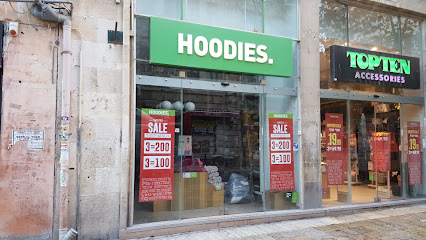
Old City Bazaar
Explore the Old City Bazaar, a vibrant gift shop in Jerusalem offering unique handcrafted treasures next to the historic Church of the Holy Sepulchre.
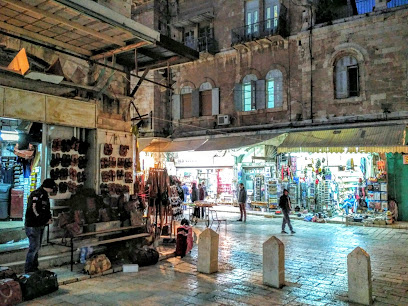
Jerusalem New Souvenir Store
Explore the Jerusalem New Souvenir Store for unique keepsakes, local crafts, and authentic treasures capturing the spirit of this historic city.
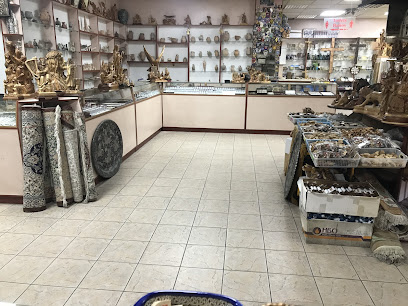
The Jerusalem Gift Shop
Explore The Jerusalem Gift Shop for unique souvenirs and handcrafted treasures that celebrate the rich culture and history of Jerusalem.
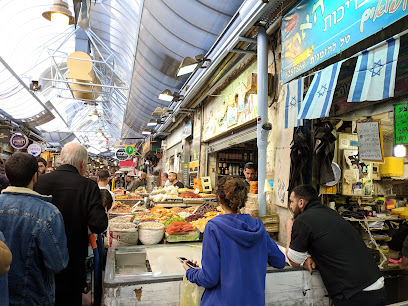
One of a kind
Shop unique women's fashion at One of a Kind in Jerusalem, where individuality meets the vibrant spirit of the city.

Barbara Shaw Gifts German colony Jerusalem
Explore Barbara Shaw Gifts in Jerusalem for unique Israeli memorabilia, kitchen supplies, and religious goods in a charming gift shop.
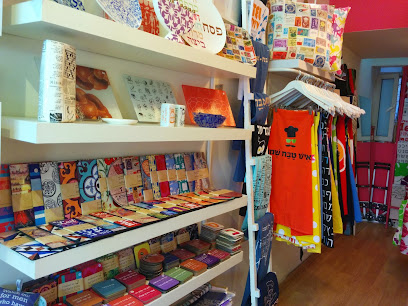
Old City Gift Shop - Souvenirs, Jewellery & Judaica in Jerusalem
Explore the Old City Gift Shop in Jerusalem for unique souvenirs, exquisite jewelry, and authentic Judaica that embody the city's rich heritage.
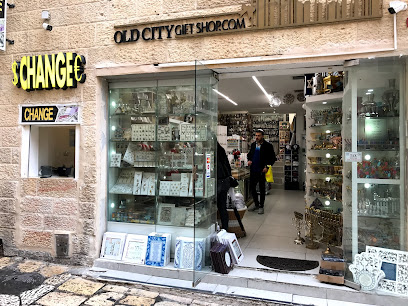
Garden Of Eden Bazzar
Explore the Garden of Eden Bazaar in Jerusalem - a bustling shopping hub filled with local crafts, delicious street food, and vibrant culture.
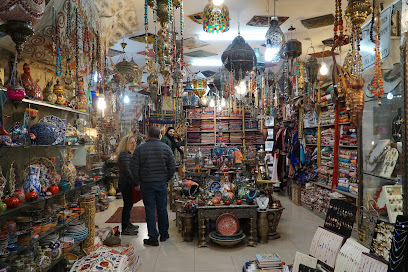
The good store /החנות הטובה
Explore a treasure trove of unique jewelry at The Good Store, a must-visit destination for tourists in Jerusalem seeking quality and artistry.
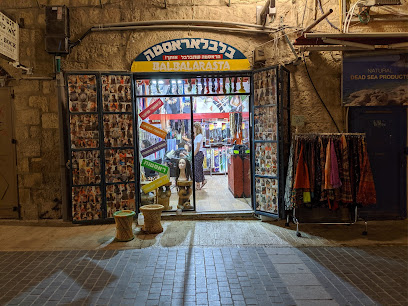
Bassam Barakat Antiquities
Discover the rich history of Jerusalem through unique artifacts at Bassam Barakat Antiquities, where every piece has a story to tell.
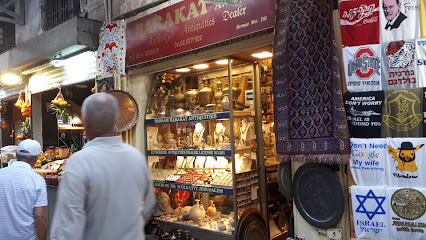
Essential bars & hidden hideouts
BeerBazaar Jerusalem
Discover the essence of Jerusalem's craft beer scene at BeerBazaar, a lively brewpub offering a rich selection of local and international brews.
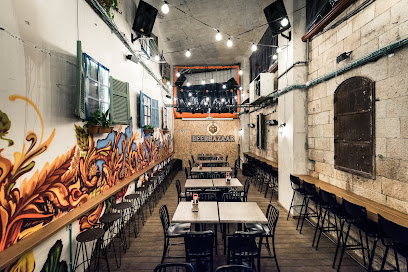
Gatsby Cocktail Room
Discover the stylish Gatsby Cocktail Room in the heart of Jerusalem, where crafted cocktails and a vibrant atmosphere create unforgettable nights.
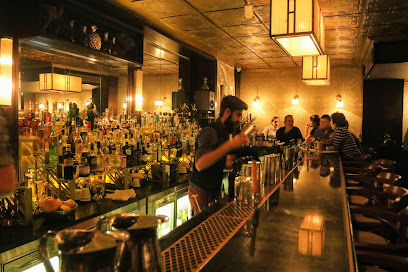
Mike's Place
Discover Mike's Place, Jerusalem's lively sports bar, where delicious food and exhilarating sports unite in a vibrant atmosphere.
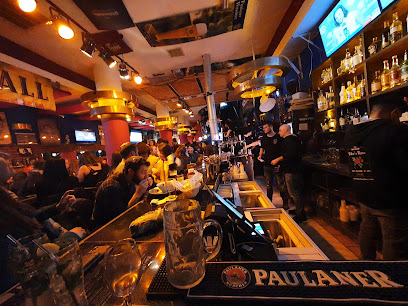
Dublin Irish Pub
Discover the lively atmosphere of Dublin Irish Pub, a perfect blend of Irish culture and Jerusalem's vibrant nightlife.
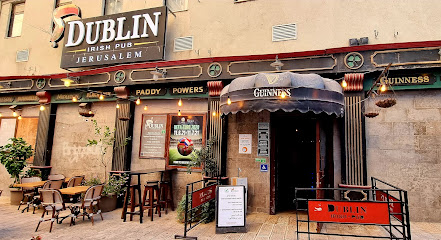
Hataklit Bar
Discover the vibrant nightlife of Jerusalem at Hataklit Bar, where delicious gastropub cuisine meets an energetic nightclub atmosphere.
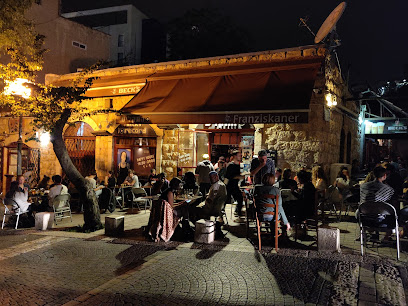
Glen Whisk(e)y bar
Experience the best of global whiskeys and cocktails in the vibrant Glen Whisk(e)y Bar, a must-visit nightlife destination in Jerusalem.
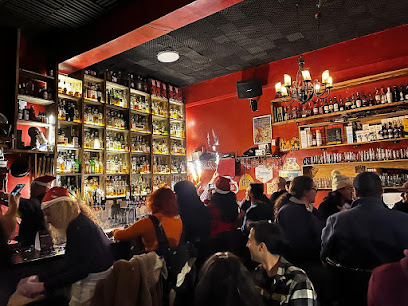
Hashchena (Bar) - השכנה
Discover the heart of Jerusalem's nightlife at Hashchena Bar, where cocktails, wine, and a vibrant atmosphere await.
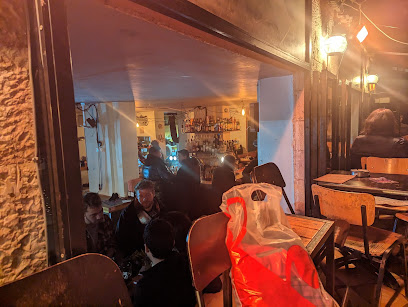
The Sira Pub
Discover the lively spirit of Jerusalem at The Sira Pub, a favorite spot for locals and tourists to unwind with drinks and vibrant entertainment.
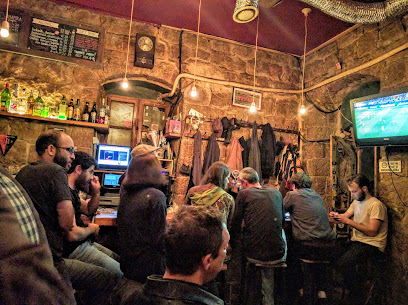
Generation Pub
Discover the vibrant nightlife at Generation Pub, Jerusalem’s favorite spot for drinks, laughter, and unforgettable moments.
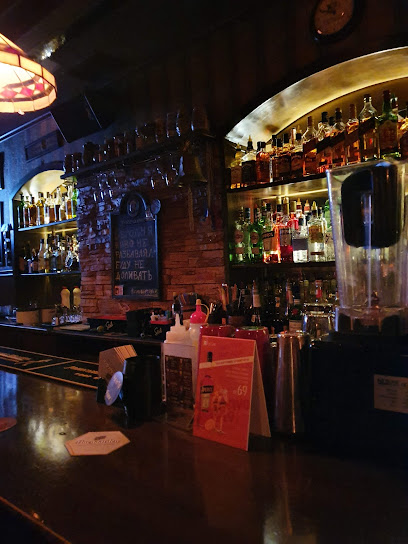
Wine Bar
Experience the best of local and international wines in a chic atmosphere at Jerusalem's Wine Bar, perfect for any occasion.
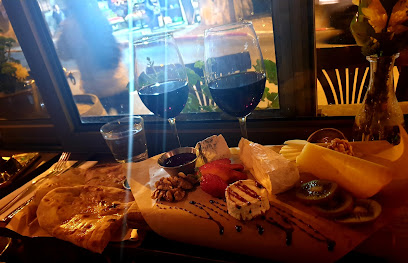
Half parrot
Discover the vibrant nightlife of Jerusalem at Half Parrot, an affordable bar offering a unique atmosphere and diverse drink selections.
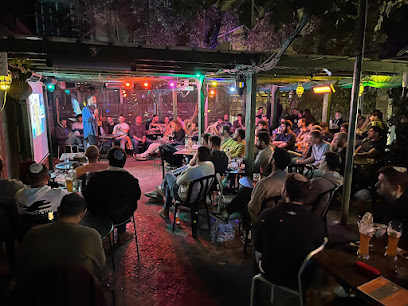
Rabbit Hole
Discover Rabbit Hole, Jerusalem's premier cocktail bar known for its unique drinks, friendly atmosphere, and vibrant nightlife experience.
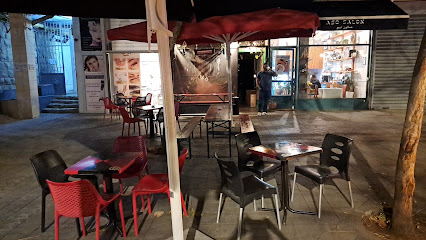
טרומפלדור בר - Trumpeldor bar
Discover the heart of Jerusalem's nightlife at Trumpeldor Bar, a unique fusion of Israeli cuisine, refreshing drinks, and a lively atmosphere.
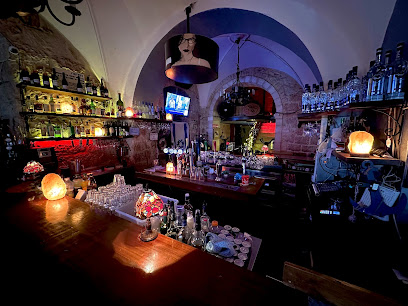
Shuka
Experience the vibrant nightlife of Jerusalem at Shuka, a lively pub offering exquisite drinks and a local atmosphere.
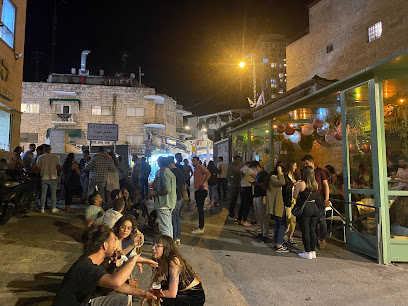
Local Phrases
-
- Helloשָׁלוֹם
[Shalom] - Goodbyeלְהֵיתֵר
[Lehitraot] - Yesכֵּן
[Ken] - Noלֹא
[Lo] - Please/You're welcomeבְּבַקָּשָׁה
[Bevakasha] - Thank youתּוֹדָה
[Toda] - Excuse me/Sorryסְלִיחָה
[Slicha] - How are you?אֵיך אַתָּה?
[Eich Ata?] - Fine. And you?טוֹב. וְאַתָּה?
[Tov. Ve'ata?] - Do you speak English?הֲאַתָּה מְדַבֵּר אַנְגְלִית?
[Ha'ata medaber Anglit?] - I don't understandאֲנִי לֹא מֵבִין
[Ani lo mevin]
- Helloשָׁלוֹם
-
- I'd like to see the menu, pleaseאֲנִי רוֹצֶה לִרְאוֹת אֶת הַתַּפְרִיט, בְּבַקָּשָׁה
[Ani rotseh lirot et hataprit, bevakasha] - I don't eat meatאֲנִי לֹא אוֹכֵל בָּשָׂר
[Ani lo ochel basar] - Cheers!לְחַיִּים!
[Lechayim] - I would like to pay, pleaseאֲנִי רוֹצֶה לְשַׁלֵם, בְּבַקָּשָׁה
[Ani rotseh leshalem, bevakasha]
- I'd like to see the menu, pleaseאֲנִי רוֹצֶה לִרְאוֹת אֶת הַתַּפְרִיט, בְּבַקָּשָׁה
-
- Help!עֶזְרָה!
[Ezra!] - Go away!לְךָ הַלְאָה!
[Lecha hal'ah!] - Call the Police!תִּתְקַשֵׁר לַמִּשְׁטָרָה!
[Titkasher la'mishtara!] - Call a doctor!תִּתְקַשֵׁר לַרוֹפֵא!
[Titkasher la'rofe] - I'm lostאֲנִי אָבֵדָה
[Ani aveda] - I'm illאֲנִי חוֹלֶה
[Ani holeh]
- Help!עֶזְרָה!
-
- I'd like to buy...אֲנִי רוֹצֶה לִקְנוֹת...
[Ani rotseh liknot...] - I'm just lookingאֲנִי רַק צוֹפֶה
[Ani rak tzofeh] - How much is it?כַּמָּה זֶה עוֹלֶה?
[Kama ze ole?] - That's too expensiveזֶה יָקָר מִדַי
[Ze yakar midai] - Can you lower the price?אִפִּשֵׁר לַהַפְחִית אֶת הַמְחִיר?
[Ifshar lahafchit et hamchir?]
- I'd like to buy...אֲנִי רוֹצֶה לִקְנוֹת...
-
- What time is it?מַה הַשָּׁעָה?
[Ma hasha'a?] - It's one o'clockזֶה חָדֵשׁ
[Ze chadesh] - Half past (10)חֲצִי אַחַר (עֶשֶׂר)
[Chatzi achar (eser)] - Morningבֹּקֶר
[Boker] - Afternoonצָהֳרַיִים
[Tzohorayim] - Eveningעֶרֶב
[Erev] - Yesterdayאֶתְמוֹל
[Etmol] - Todayהַיוֹם
[Hayom] - Tomorrowמָחָר
[Machar] - 1אֶחָד
[Echad] - 2שְׁתַיִם
[Shtayim] - 3שָׁלוֹשׁ
[Shalosh] - 4אַרְבָּעָה
[Arba'a] - 5חֲמִשָּׁה
[Chamisha] - 6שִׁשָּׁה
[Shisha] - 7שִׁבְעָה
[Shiv'a] - 8שְׁמוֹנֶה
[Shmone] - 9תִּשְׁעָה
[Tisha] - 10עֶשֶׂר
[Eser]
- What time is it?מַה הַשָּׁעָה?
-
- Where's a/the...?אֵיפֹה נִמְצָא אוֹ הַ...
[Eifo nimtza o ha...] - What's the address?מַה הַכְּתוֹבֶת?
[Ma haktove] - Can you show me (on the map)?אִתָּה יָכוֹל לְהַרְאוֹת לִי (עַל הַמַפָּה)?
[Ata yachol leharot li (al hamapa)?] - When's the next (bus)?מָתַי הַאוֹטוֹבוּס הַבָּא?
[Matay haotobus haba?] - A ticket (to ....)כַּרְטִיס (לְ....)
[Kartis (le....)]
- Where's a/the...?אֵיפֹה נִמְצָא אוֹ הַ...
History of Jerusalem
-
Jerusalem's history dates back to ancient times, with evidence of settlement as early as 3000 BCE. The city is mentioned in ancient Egyptian texts and in the Bible, where it is referred to as 'Urusalim,' meaning 'City of Peace.'
-
Around 1000 BCE, King David captured Jerusalem and established it as the capital of the united Kingdom of Israel. His son, Solomon, later built the First Temple, making the city a center of religious worship for the Jewish people.
-
In 586 BCE, the Babylonian king Nebuchadnezzar II conquered Jerusalem, destroyed the First Temple, and exiled many of the city's inhabitants to Babylon. This marked a significant period of hardship and displacement in Jewish history.
-
After the fall of the Babylonian Empire, the Persian King Cyrus the Great allowed the exiled Jews to return to Jerusalem in 538 BCE. They rebuilt the city and constructed the Second Temple, which was completed in 516 BCE.
-
Following Alexander the Great's conquest, Jerusalem came under Hellenistic influence. In 167 BCE, the Seleucid king Antiochus IV Epiphanes desecrated the Second Temple, leading to the Maccabean Revolt. The Jewish rebels, led by the Hasmonean family, successfully reclaimed and rededicated the Temple.
-
Jerusalem fell under Roman control in 63 BCE. In 70 CE, following a Jewish revolt, the Roman general Titus besieged and destroyed the Second Temple, leaving only the Western Wall, which remains a sacred site in Judaism.
-
During the Byzantine period, Jerusalem became a major center of Christianity. In 638 CE, the city was conquered by the Muslim Caliph Umar ibn al-Khattab, ushering in a period of Islamic rule. The Dome of the Rock and Al-Aqsa Mosque were constructed on the Temple Mount during this time.
-
In 1099, during the First Crusade, Christian crusaders captured Jerusalem and established it as the capital of the Kingdom of Jerusalem. This period ended in 1187 when the Muslim leader Saladin recaptured the city, allowing for a tolerant coexistence of religious communities.
-
Jerusalem was part of the Ottoman Empire from 1517 to 1917. During this time, the city's infrastructure was expanded, and it became a multicultural hub. Following World War I, Jerusalem came under British control as part of the Mandate for Palestine, leading to significant political and social changes.
-
In 1948, the State of Israel was established, and Jerusalem was declared its capital. However, the city was divided during the 1948 Arab-Israeli War, with West Jerusalem under Israeli control and East Jerusalem, including the Old City, under Jordanian control. In 1967, during the Six-Day War, Israel captured East Jerusalem, reunifying the city.
-
Today, Jerusalem is a city of profound religious and cultural significance for Jews, Christians, and Muslims. It is home to numerous historical and religious sites, including the Western Wall, the Church of the Holy Sepulchre, and the Al-Aqsa Mosque. The city's diverse population and rich history continue to make it a focal point of global interest and significance.
Jerusalem Essentials
-
Jerusalem is well-connected to major international cities. The primary gateway is Ben Gurion International Airport (TLV), located about 50 kilometers from Jerusalem. From the airport, you can take a taxi, shared shuttle (Nesher), or the high-speed train to Jerusalem's Yitzhak Navon Station. Buses and private car services are also available. For those traveling from within Israel, Jerusalem is accessible by intercity buses, trains, and private cars.
-
Jerusalem's public transportation network includes buses, light rail, and taxis. The Jerusalem Light Rail connects key parts of the city and is a convenient option for tourists. Egged buses cover extensive routes within the city and to other cities in Israel. Taxis are readily available but ensure the meter is running to avoid overcharging. Rental cars are an option but note that parking can be challenging in the city center. Walking is also a great way to explore the Old City and nearby attractions.
-
The official currency in Israel is the Israeli New Shekel (ILS). Credit and debit cards are widely accepted in hotels, restaurants, and shops. ATMs are available throughout Jerusalem, especially in tourist areas. It's advisable to carry some cash for small purchases or in markets where cards might not be accepted. Currency exchange services are available at the airport, hotels, and various exchange offices in the city.
-
Jerusalem is generally safe for tourists, but it's essential to stay vigilant. Avoid East Jerusalem, especially neighborhoods like Shuafat and Silwan, where tensions can be higher. Pickpocketing can occur in crowded areas, so keep an eye on your belongings. Avoid walking alone at night in isolated areas. Always follow local news for updates on any security concerns and heed advice from local authorities.
-
In case of emergency, dial 100 for police, 101 for medical emergencies, and 102 for fire services. Jerusalem has several hospitals, including Hadassah Medical Center and Shaare Zedek Medical Center. Pharmacies are widespread and can provide over-the-counter medications. It's advisable to have travel insurance that covers medical emergencies. Always carry a copy of your passport and emergency contact numbers.
-
Fashion: Do dress modestly, especially in religious sites. Avoid wearing revealing clothing. Religion: Do respect local customs. Cover your head when visiting religious sites such as the Western Wall or churches. Public Transport: Do be respectful and offer your seat to the elderly or disabled. Don't eat or drink on public transport. Greetings: Do greet people with a friendly 'Shalom' or 'Hello'. Handshakes are common, but be mindful of religious customs. Eating & Drinking: Do try local foods and accept hospitality graciously. Don't refuse food or drink offered by locals, as it can be considered impolite.
-
To experience Jerusalem like a local, visit the Mahane Yehuda Market for fresh produce, spices, and local delicacies. Walk through the different quarters of the Old City to appreciate its diverse cultures. Take part in a Shabbat meal if invited. Use local buses and light rail for an authentic commuting experience. For a serene escape, visit the Ein Kerem neighborhood with its charming streets and cafes. Engage with locals, who are often eager to share insights about their city.
Trending Landmark in Jerusalem
Nearby Cities to Jerusalem
-
Things To Do in Bethlehem
-
Things To Do in Modi'in
-
Things To Do in Dead Sea
-
Things To Do in Ein Gedi
-
Things To Do in Holon
-
Things To Do in Ramat Gan
-
Things To Do in Masada
-
Things To Do in Hod Hasharon
-
Things To Do in Ashdod
-
Things To Do in Jaffa
-
Things To Do in Kfar Saba
-
Things To Do in Tel Aviv
-
Things To Do in Madaba
-
Things To Do in Herzliya
-
Things To Do in Ra'anana

















